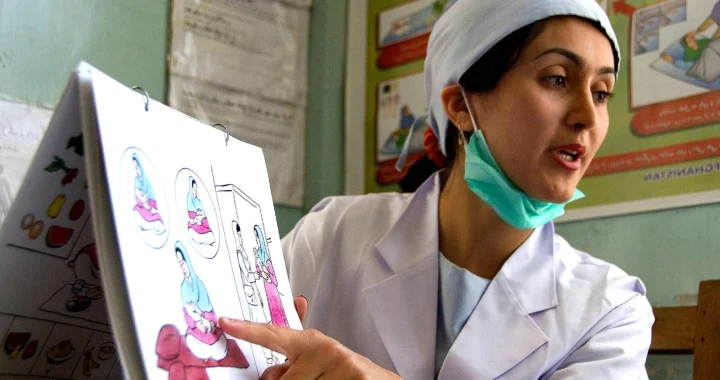An Interview with Aria Widyanto, Chief Risk and Sustainability Officer at Amartha

Aria Widyanto, Chief Risk and Sustainability Officer at Amartha | Photo: Amartha.
Can you tell us about your organization and your current role?
Amartha, established in 2010, originates from a small village in Bogor, Indonesia. It operates as a prosperity platform (fintech peer-to-peer lending model) that facilitates working capital access for women entrepreneurs in rural communities. Its primary objective is to support the establishment and expansion of their small businesses, enabling them to pursue their goals in life.
To date, Amartha has disbursed more than 1,1 billion US Dollars (IDR 16 trillion) of working capital to support over 1.7 million women who operate micro-businesses throughout 55,000 villages in Indonesia. Over the course of 13 years, Amartha has been committed to implementing innovative methods to promote technology adoption and utilization for people in rural areas. This commitment emerges from our belief that promoting equitable prosperity must begin by advancing the livelihood of the people at the bottom of the pyramid.
I currently hold the position of Chief Risk and Sustainability Officer (CRSO) at Amartha. My role involves overseeing risk management activities to ensure that the organization conforms to the highest standards of governance. This includes coordinating functions such as risk management, data science, and other internal control functions. My objective in the sustainability position is to integrate sustainability strategies and initiatives into the companies’ risk management practices. Hence, there is a continuous balance between growing the business and providing value to society.
What are your corporate sustainability commitments and goals?
We have set our sustainability commitment through the three pillars of ESG objectives.
Our objective in terms of environmental commitment is to achieve a harmonious balance between environmental protection and economic growth. To achieve this goal, we have established our commitment to systematically reduce our emissions of greenhouse gasses by 30% by the year 2030. Additionally, we aim to encourage sustainable consumption and production within our internal community of employees and customers.
Furthermore, in the area of social responsibility, as a financial service provider with a specific focus on servicing rural micro, small, and medium enterprises (MSMEs) and women clients, we are dedicated to advancing sustainable finance and ethical lending practices. Additionally, we strive to empower women and enhance the general well-being of all those involved with our organization.
In terms of governance, as a financial technology platform, we are dedicated to safeguarding client data privacy, upholding equal rights, and fostering collaborative and reliable collaborations with our ecosystem partners.
What have been your most difficult challenges in achieving those goals?
The complex supply chain is a challenge. Microfinance organizations operating in the grassroots level like Amartha face difficulties in monitoring and minimizing carbon emissions due to their complex supply chains that involve multiple stakeholders. Amartha needs comprehensive measuring and monitoring systems to detect and address carbon emission sources throughout the whole value chain. Currently, Amartha’s primary source of carbon emissions is from operational activities, which encompasses the regular movement of field officers and the consumption of power in both the field office and head office. Implementation of green building initiatives and energy consumption reduction campaigns are the starting points to mitigate these issues.
The next one is about public awareness and literacy. Education plays a crucial role in performing sustainability measures to enable the successful adoption of new behaviors. Specifically, within the area of women’s empowerment, there is a pervasive bias against women that exists in various aspects of everyday life. Regarding data privacy and protection, the general public is often unaware of the potential risks associated with their personal data. And also, in terms of financial literacy, the lack of public awareness in financial planning and personal financial management remains a significant obstacle.
What opportunities do you see to address those challenges?
There is potential for achieving carbon neutrality. Amartha can capitalize on technological breakthroughs in renewable energy and energy efficiency to reduce its carbon footprint. By collaborating with industry partners, Amartha could improve its carbon reduction tracking and initiatives by acquiring expertise and from industry experts, including renewable energy providers, sustainability consultants, and other organizations. This collaboration will provide Amartha with access to valuable knowledge, resources, and proven strategies.
We also see the opportunity to foster cooperation for public education. In order to promote a more ethical and responsible finance, we may expand our reach by cooperating with stakeholders in the ecosystem and fostering partnerships with regulators, academics, and industry. In terms of empowering women, working alongside international and local organizations with focus on women’s issues offers a chance to further promote gender inclusivity in Amartha’s business ecosystem.
What are the ESG material (environmental, social, and governance) issues that your organization focuses on, and how do you integrate them into your corporate sustainability?
We see ESG as an integral part of risk management, aimed at securing future growth and revenue of the company by adding value to the customers and stakeholders. We have outlined our ESG objectives as follow:
Environment: Protect the environment while promoting economic growth.
- Reduce Greenhouse Gas Emission
- Promote Sustainable Consumption and Production
Social: Deliver impacts on the lives of our customers, team members, and communities.
- Promote Sustainable Financing
- Promote Ethical Lending
- Drive Women Empowerment
- Improve well-being
Governance: Establish a secure platform through an accountable governance approach.
- Protect Customer Data Privacy
- Respect Equal Rights
- Maintain Trustworthy Partnership
How do you communicate your corporate sustainability strategy and initiatives to internal and external stakeholders?
Our corporate sustainability communication focuses on three elements. The first one is selecting and defining the appropriate target audience. Amartha acknowledges that our stakeholders, including investors, partners, regulators, lenders, and others, constitute the audience that needs to be informed about our sustainability strategy, in line with our commitment to operating as a sustainable business. Identifying the appropriate target audience will enable us to choose the most suitable communication channels.
The second one is visual communication. Images convey significant meaning. Our Sustainability Report is published on our website annually, integrating videos, infographics, and other visual media to illustrate our initiatives in promoting sustainability.
Lastly, we believe in using multiple channels. Internally, we ensure that our team is well-informed and engaged by regularly organizing training sessions and workshops specifically focused on sustainability practices. For the external audience, we publish comprehensive sustainability reports that provide an in-depth overview of our strategies, activities, and achievements. Our website serves as a platform to exhibit our sustainability pledges, activities, and progress to the general public. In addition, we employ newsletters and social media outlets to expand our reach to a broader audience.
What were the most exciting initiatives and progress that you and your team have done in 2023?
On the environmental aspect, we have kicked off our carbon offsetting initiatives by restoring mangrove forests and reducing our carbon emissions by implementing green office initiatives. We partnered with professionals and reputable organizations to execute our projects.
For the social aspect, we successfully established a Diversity and Inclusion Committee with the aim of ensuring an inclusive atmosphere in the workplace. We furthermore developed a digital village prototype on Sulawesi island with the aim of enhancing internet connectivity for the local residents. Within the realm of education, we have initiated our signature scholarship programs with the aim of fostering equitable access to higher education for girls residing in rural areas throughout Indonesia.
Regarding governance, we focused on establishing further strategic alliances. Amartha collaborates with regulators, multilateral development agencies, and private sector partners to implement our sustainability initiatives. These partners include the Ministry of Women Empowerment and Child Protection, the Ministry of Communication and Informatics (Kominfo), academic communities such as universities and research centers, and multinational institutions like the World Bank and IFC.
What are the lessons you learned from your sustainability efforts in 2023?
Upon reviewing our sustainability initiatives throughout 2023, a key insight that emerged was the significance of collaboration in achieving our objectives. Over the course of the year, we noticed the significant impact that collaborative efforts could have on the advancement of sustainability initiatives. By collaborating with multiple stakeholders, such as other non-governmental organizations, communities, and government agencies, we learned that combining resources, expertise, and ideas greatly enhanced our ability for creating meaningful impact.
For instance, our longstanding collaboration with the IBCWE, Jejakin, ministries, NGOs, and other organizations has been promoting a deeper comprehension and embrace of sustainable practices.
What are your plans for your sustainability efforts in 2024?
In essence, our plans for 2024 are deeply rooted in three sustainability pillars. Through Amartha Lestari, our primary aim is to continue safeguarding the environment while fostering economic growth. We are dedicated to implementing initiatives that reduce our ecological footprint and enhance sustainable practices within our operations.
Then, through Amartha Madani, our commitment remains deeply rooted in delivering positive impacts on the lives of our stakeholders. This involves empowering communities through financial inclusion, ensuring our team thrives in a supportive work environment, and actively engaging in community development projects that uplift the regions we operate in.
Meanwhile, Amartha Bestari emphasizes the establishment of a robust and accountable governance approach. We aim to strengthen our internal mechanisms to ensure a secure and trustworthy platform for all our stakeholders.
Moreover, collaboration will play a crucial role in promoting sustainability initiatives. Collaborative efforts will enable us to amplify our voice, advocate for sustainable practices, and drive systemic change on a broader scale.
If you were to share advice you learned in your role that may be helpful to your peers and sustainability practitioners around the world, what would that be?
As a leader, we need to set the tone from the top. We need to share our realization that sustainability practices are in fact mitigating our future business risk, hence sustainability strategy needs to be put in the framework of business perspectives. Another highlight is to ensure continuous iteration and communication of our initiatives throughout the organization, customers and stakeholders.
Furthermore, leaders should encourage continuous learning and development, providing resources and opportunities for their team members to expand their knowledge and skills in sustainability practices. This not only fosters personal and professional growth but also strengthens the organization’s sustainability efforts by leveraging a skilled and informed workforce.
Editor: Nazalea Kusuma


 Looking into the Global Midwife Shortage
Looking into the Global Midwife Shortage  Reframing Governance in the Era of Water Bankruptcy
Reframing Governance in the Era of Water Bankruptcy  Strengthening Resilience amid Growing Dependence on Space Infrastructure
Strengthening Resilience amid Growing Dependence on Space Infrastructure  Indian Gig Workers Push Back Against 10-Minute Delivery Service Strain
Indian Gig Workers Push Back Against 10-Minute Delivery Service Strain  Call for Governance: Grassroots Initiatives Look to Scale Efforts to Conserve Depleting Groundwater
Call for Governance: Grassroots Initiatives Look to Scale Efforts to Conserve Depleting Groundwater  Integrating Environment, Climate Change, and Sustainability Issues into Education Systems
Integrating Environment, Climate Change, and Sustainability Issues into Education Systems